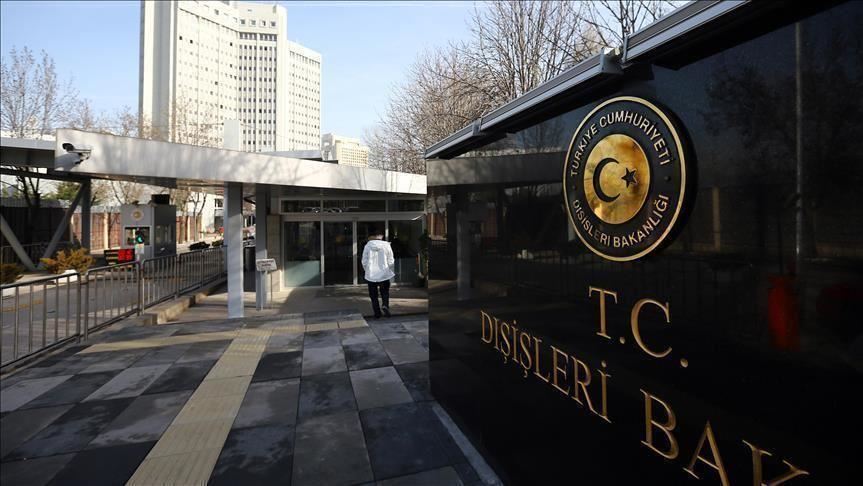'East Mediterranean gas pipeline project can’t succeed'
‘Such sordid plans will continue to fail in the future, as they did in past,’ says Turkish Foreign Ministry spokesman

ANKARA
The Eastern Mediterranean natural gas pipeline project, which excludes Turkey, cannot succeed, the Turkish Foreign Ministry said Thursday.
“Any project disregarding Turkey, which has the longest coastline in the Eastern Mediterranean, and the Turkish Cypriots, who have equal rights over the natural resources of the Island of Cyprus, cannot succeed,” spokesman Hami Aksoy said in a statement.
Aksoy stressed that the project is “the latest instance of futile steps” aimed at excluding Turkey and the Turkish Republic of Northern Cyprus (TRNC) in the region.
Bringing this issue once more to the attention of the international community, Aksoy underlined that “such sordid plans will continue to fail in the future, as they did in the past.”
Turkey is the most commercially feasible and secure route for the utilization of the natural resources in the Eastern Mediterranean and their transfer to consumer markets in Europe, including Turkey, he added.
“Refusing to cooperate both with us and Turkish Cypriots in spite of this fact is actually a direct manifestation of some countries’ pursuit of futile political motivations instead of cooperation,” he said.
On Thursday, Greece, Israel and the Greek Cypriot administration signed an agreement to build a 1,900-kilometer (1,180-mile) natural gas pipeline that would run from Israel through Southern Cyprus, Crete, Greece and ultimately to Italy.
But the main problem with the project is that it is costly and the gas to cover these costs has not yet actually been supplied.
According to the Greek newspaper To Vima, it is estimated that the transfer cost of the natural gas would be three times cheaper if the pipeline passes through Turkey.
Prior to the signing of the agreement, Turkish Cypriot President Mustafa Akinci condemned the project, stressing that it “contradicts geographical facts” and was “decided on purely political concerns.”
Turkey is a guarantor nation for the TRNC and has consistently contested the Greek Cypriot administration's unilateral drilling in the Eastern Mediterranean, asserting that the TRNC also has rights to the resources in the area.
In 1974, following a coup aimed at the annexation of Cyprus by Greece, Ankara had to intervene as a guarantor power. In 1983, the TRNC was founded.
The decades since have seen several attempts to resolve the Cyprus dispute, all ending in failure. The latest, held with the participation of the guarantor countries -- Turkey, Greece and the U.K. -- came to an end without any progress in 2017 in Switzerland.
Anadolu Agency website contains only a portion of the news stories offered to subscribers in the AA News Broadcasting System (HAS), and in summarized form. Please contact us for subscription options.




